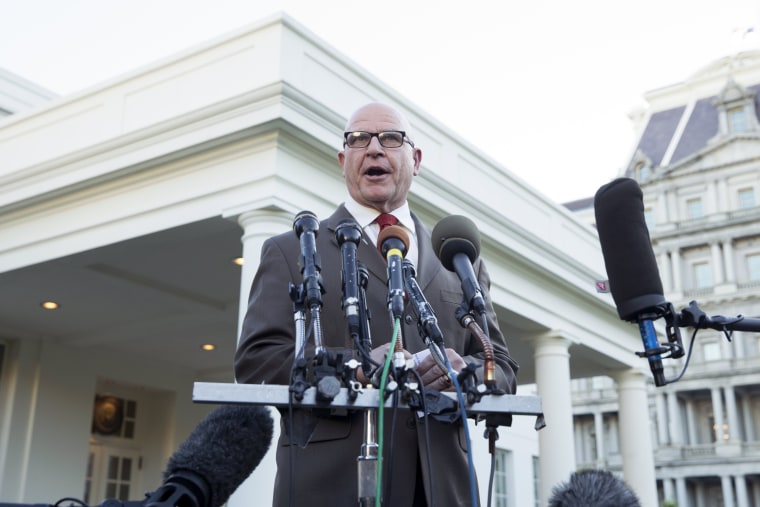As H.R. McMaster, Donald Trump's second White House national security advisor, leaves the West Wing, he apparently has a few things he'd like to make clear before he's forced from his post. TPM noted this morning:
In his last public speech as national security adviser Tuesday night, H.R. McMaster offered harsh words for Russia and said that the U.S. and the rest of the international community have not been tough enough on Russia."We have failed to impose sufficient costs," he said in a speech at the Atlantic Council.He warned that Russia "has used old and new forms of aggression to undermine our open societies." McMaster offered the examples of the use of a nerve agent to poison a former spy in Britain, allegedly carried out by Russia, and cyber attacks on the U.S.
If this sounds at all familiar, it's probably because the last public remarks McMaster made as White House national security advisor -- before Trump decided to replace him -- were quite similar. A few weeks ago, McMaster was largely unrestrained in his criticism of the Kremlin, lashing out at Russia's support for the Assad regime in Syria and Russia's suspected role in a poison-gas attack in the U.K.
It was a week later that Trump decided McMaster had to go.
What's more, as Rachel noted on the show two weeks ago, the last action McMaster took in his position before being fired was overseeing a National Security Council process that resulted in a recommendation to expel dozens of Russian diplomats from American soil.
It's almost as if McMaster, once he no longer cared about reading from the president's preferred script, felt freer to express his concerns about Moscow.
"We have failed to impose sufficient costs," he said last night. One wonders if his boss agrees.
